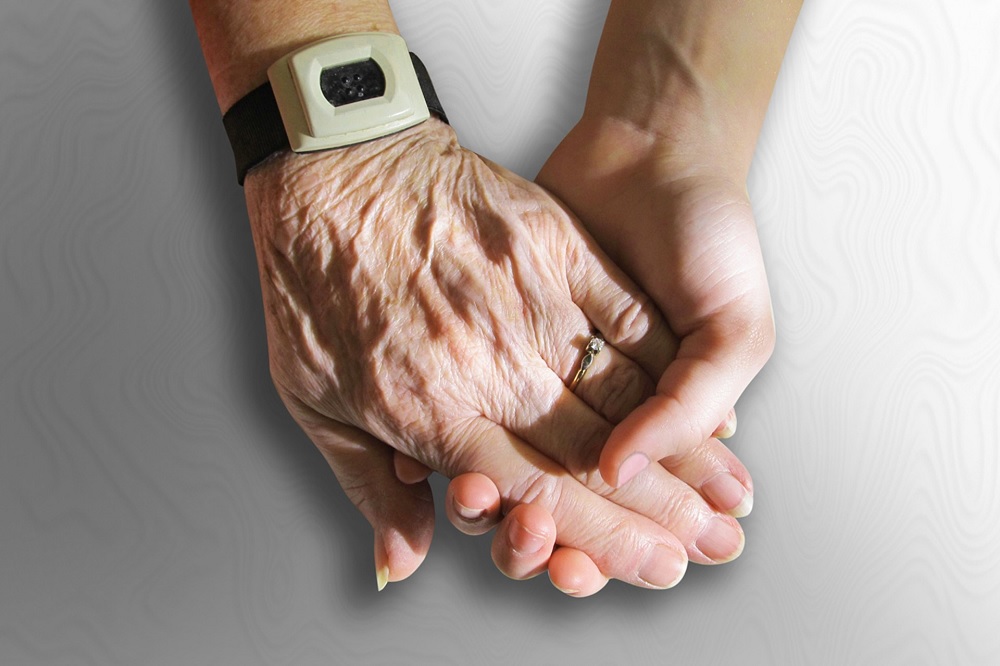We must move beyond the symbolism of clapping for carers and make real changes

Rhun ap Iorwerth, Plaid Cymru Shadow Health Minister
During this crisis, we’ve seen an emergency unfold all across our society. Care homes and the most vulnerable in our society have been particularly at risk. We have seen large numbers of residents contracting the virus, and devastatingly there have been many deaths.
But those working in care homes have also been vulnerable. They have been more exposed to the virus. We’ve heard many concerns about lack of PPE or inadequate guidance. The ONS has noted that the risk of death amongst social care workers was “statistically significantly higher” than amongst the general public.
Care workers, however, have never faltered in their commitment to the people they care for. We have seen many examples of their advocacy for and dedication to their residents; numerous care homes have moved their staff in full time, putting their personal lives on hold for months. Those running care homes have pushed back against unsafe discharges from health boards, and they have continuously called for more testing.
This is why we need to commit to improving the working conditions, salary, and capacity of care these individuals are able to give – so let’s use Carers Week as a platform to do so. This workforce has proven time and time again (not only in the past three months) how valuable and critical it is for our communities. This workforce invests itself so fully in the care of our elderly and most vulnerable, and the importance of its contributions cannot be overstated.
Clapping for carers was a wonderful gesture of gratitude – but we must move beyond symbolism. Governments need to take concrete, informed steps to improving the sector to benefit its workforce and those receiving care. That is why Plaid Cymru set up a Care Commission last year to inform our policies, to look at the best way forward is for this crucial sector. The Commission took evidence from various stakeholders and experts within the sector, and concluded that one important step to improving the care sector would be to give parity of pay and terms and conditions between social care and health staff.
Central to the Commission’s recommendations was that the care sector should become a national service along with the NHS – the creation of a true National Health and Care Service for Wales. Everyone knows that we need a truly integrated system, but we’re determined to make it happen.
Support
Unpaid carers have also been under an immense increase of pressure as a result of the crisis, as reflected in recent survey results published by Carers UK. In fact, a further 196,000 people in Wales have taken on caring responsibilities since the coronavirus outbreak – that’s 8% of the adult population in Wales. On top of the 487,000 (or 19% of the adult population) people already acting as unpaid carers, this would mean that over a quarter of the adult population of Wales are providing unpaid care, 50% more than before the crisis.
The survey also revealed that one in four workers in Wales have caring responsibilities, and that those who started caring since the outbreak are more likely to be younger, female, and have children under the age of 18. Evidence from the survey suggests that almost half of unpaid carers worry about having to reduce paid working hours, leave work, or stop studying, and 41% report that they worry about being unable to manage the stress or responsibility of being a carer.
We cannot expect this massive group of people to go on juggling immense responsibilities with no extra support – it would be absolutely detrimental to their wellbeing, and could have a number of other cascading negative repercussions.
Urgent changes are needed to support this cohort, such as increasing the basic level of Carers Allowance to match the rise in Universal Credit. Unpaid carers should also be subject to extra employment protection, and employers should be supported in offering flexibility to their employees who have caring responsibilities. Cuts to respite care services should also be reversed, so that unpaid carers have an opportunity to have a break, an intervention that is crucial to their wellbeing, and in turn their caring capabilities.
Additional support for young carers in education also needs to be top priority for the Welsh and Westminster governments. These young people’s educations will undoubtedly have suffered as a result of the crisis, meaning that that additional support from public services and third sector organisations is more important than ever – they must be properly funded.
The coronavirus crisis has highlighted the fragility of our systems, the importance and dedication of our care sector staff and unpaid carers, and the desperate need for innovation. It’s taught us that we need to find new ways of doing things to ensure security and equality to our workforces, to our children, and to our most vulnerable, and that real change is necessary for the welfare of Wales and its people post-crisis.
So this Carers Week, why not take the first step and commit to backing change to how we do things in the care sector and in relation to unpaid carers. Back the bold moves needed to really show care workers and unpaid carers how grateful we are to them.
Support our Nation today
For the price of a cup of coffee a month you can help us create an independent, not-for-profit, national news service for the people of Wales, by the people of Wales.






